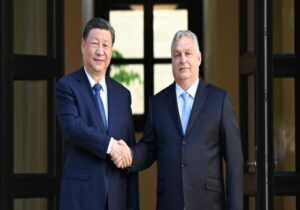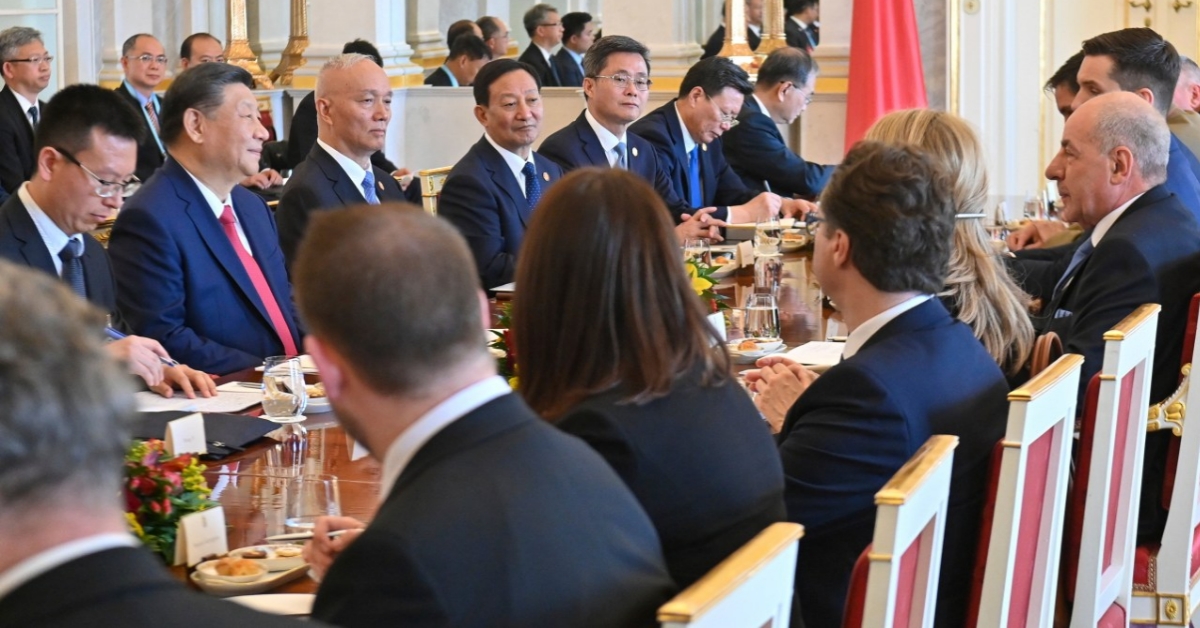China and Hungary: An “All-Weather” Strategic Partnership
In a significant turn of events, Chinese President Xi Jinping has recently described the relationship between China and Hungary as an “all-weather” strategic partnership. This designation, often reserved for China’s relationships with select nations, signifies a profound and enduring bond between the two countries. In this comprehensive blog post, we will delve into the implications of this statement, tracing the history of China-Hungary relations, examining areas of cooperation, and analyzing the significance of this partnership in the global landscape.
History of China-Hungary Relations

The diplomatic ties between China and Hungary date back to 1949, yet it wasn’t until the 1990s that their relationship began to flourish. Hungary stood among the first Central European countries to establish diplomatic relations with China, laying the foundation for a strong and amicable partnership. This initial step paved the way for deeper engagement and collaboration between the two nations.
A significant milestone was reached in 2017 when Hungary and China elevated their relationship to a strategic partnership. This upgrade underscored a shared commitment to enhancing cooperation across various domains, including economic ties, trade relations, and cultural exchanges. It marked a pivotal moment in their bilateral relations, heralding a new era of collaboration and mutual benefit.
Areas of Cooperation
The cooperation between China and Hungary spans a wide range of fields, demonstrating the depth and breadth of their partnership:
- Economy and Trade: China has emerged as Hungary’s largest trading partner outside the EU, with bilateral trade reaching $10.8 billion in 2020. The economic collaboration extends beyond trade to encompass investments in key sectors such as transportation, energy, and technology. Hungary has positioned itself as a vital hub for Chinese investment in Central Europe, facilitating mutually beneficial ventures and fostering economic growth.
- Infrastructure Development: China’s substantial investments in Hungary’s infrastructure have played a pivotal role in modernizing the country’s transportation network and bolstering its connectivity with the broader region. Notable projects include the upgrade of the Budapest-Belgrade railway and the construction of a new airport in Budapest, which are poised to enhance Hungary’s role as a regional hub for trade and commerce.
- Technology and Innovation: Both countries are actively engaged in collaborative ventures in cutting-edge fields such as 5G technology, artificial intelligence, and renewable energy. By pooling their resources and expertise, China and Hungary seek to drive innovation, foster technological advancement, and address shared challenges in a rapidly evolving global landscape.
- Education and Culture: A robust cultural exchange program between China and Hungary promotes academic cooperation, student exchange programs, and cultural initiatives. Scholarships and exchange programs facilitate the exchange of knowledge and expertise, nurturing cross-cultural understanding and strengthening people-to-people ties between the two nations.
Significance of the “All-Weather” Partnership
Xi Jinping’s characterization of China-Hungary relations as an “all-weather” strategic partnership carries profound implications for both countries and the broader international community:
- Strengthening China’s Presence in Central Europe: Hungary’s strategic location in Central Europe makes it a crucial gateway for China’s ambitious Belt and Road Initiative (BRI) in the region. The deepening partnership between China and Hungary enhances China’s geopolitical influence and economic footprint in Central Europe, consolidating its position as a key player on the global stage.
- Countering EU and US Influence: By cultivating closer ties with Hungary, China aims to counterbalance the influence of the European Union (EU) and the United States in Central Europe. The “all-weather” partnership provides China with a platform to expand its sphere of influence, mitigate geopolitical risks, and advance its strategic objectives in the region.
- Economic Benefits: The strategic partnership between China and Hungary is poised to yield substantial economic benefits for both countries, including increased trade, investment, and job creation. By leveraging their complementary strengths and resources, China and Hungary can unlock new opportunities for economic growth and prosperity, driving forward their respective development agendas.
- Global Governance: The designation of an “all-weather” strategic partnership underscores China’s growing role in global governance and its efforts to shape international relations on its own terms. By fostering strategic partnerships with like-minded countries such as Hungary, China seeks to promote a multipolar world order, safeguard its national interests, and uphold its vision of shared prosperity and cooperation.
Conclusion
In conclusion, China and Hungary’s “all-weather” strategic partnership represents a significant milestone in their bilateral relations, symbolizing a deepening of cooperation and mutual trust. As China continues to assert its influence on the world stage, this partnership will play a pivotal role in shaping the geopolitical landscape of Central Europe and beyond. By forging closer ties and embracing a shared vision of cooperation and mutual benefit, China and Hungary are poised to navigate the complexities of the global landscape and chart a course towards a more prosperous and interconnected future.



















